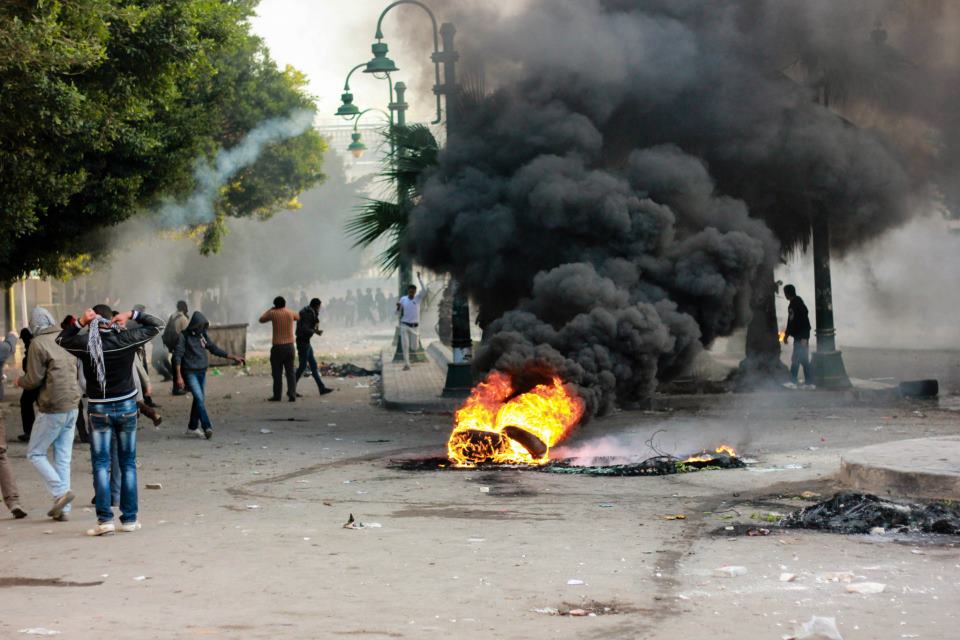CAIRO: COMESA’s third annual investor conference will bring together representatives from traditional investors in the US, EU and GCC as well as newer Asian investors, all anxious to capitalize on Africa’s potential.
Egypt will host the conference in Sharm El-Sheikh from April 12-13 under the auspices of the Ministry of Investment.
COMESA, the largest economic community in Africa, comprises 19 member countries in the eastern and southern regions, and emerged in 1998 to facilitate regional trade cooperation.
Investment Minister Mahmoud Mohieldin stressed that although COMESA members represent the core of the conference, the spirit of cooperation and regional integration includes all African countries and seeks to integrate a broad spectrum of investors.
Around 490 delegates are expected, including representatives from the African Development Bank and Chinese Development Bank, as well as 15 government ministers, the World Bank and various regional institutions.
Speakers include businessmen such as Orascom Construction CEO Samih Sawiris and Hassan Heikal, CEO of investment bank EFG-Hermes. The conference purports to “promote dialogue and action between investors, business leaders and senior policy makers, to create the necessary framework and drive investment opportunities and growth.
Entitled “Connecting Africa with the World, Mohieldin pointed out the importance of branding Africa and specific sectors of African economies in order to better communicate investment opportunities.
“Whether branding Africa as a whole or specific countries. it is repeatedly mentioned that any positive information and good opportunities for investment are not known worldwide. Efforts need to be made to both make information available and guide investors, he explained.
Although many opportunities for investment remain, the sectors of communications and information technology (CIT) and agriculture have already received significant global attention. Following the food crisis of 2008 many Asian and Gulf countries began investing heavily in agribusiness and infrastructural development related to food production and processing. Large land purchases for the purpose of food cultivation are primarily located in COMESA countries.
Mohieldin also highlighted the potential for infrastructural development. However, he warned, “growth is not just about finding opportunities but finding how to fund them. High level institutions and regional agencies as well as investment banks will discuss access to financing. We’ll be talking in depth about areas related to private equity, funding infrastructure not just through public/private partnership schemes but traditional project finance methods.
“Also, how to enhancing countries’ capacity to improve their investment climate, such as assisting SMEs [small and medium enterprises] to have access to finance.
Mohieldin pointed out COMESA’s importance in enhancing trade partnerships both among its members and with external countries, calling trade an “issue of concern following the protectionist measures undertaken by many countries following the economic crisis. Coupled with “the failure of the Doha Round to reach any positive impact on liberalization of trade among countries, the importance of regionalism and free trade is becoming felt in Africa as well as Asia, Mohieldin stated.
Despite protectionism, many countries have vowed to double their trade volumes in the coming five years, he continued.
“Although this may sound ambitious, the general figure is for trade to increase at three times the rate of GDP growth, In the COMESA countries this is usually in the range of 4.5 to 5.5 percent. So at an average of 5 percent growth, seeing trade volumes double in five years is conceivable.
The minister asked Heba Salama, the manager of COMESA’s Regional Investment Agency (RIA), to comment on the specifics of what he called a special investment area. She explained that with the establishment of a COMESA customs union in 2009, the next step is an investment area that would allow investors from member countries to be treated as nationals within COMESA.
Salama explained, “At a COMESA meeting in Kampala in 2008 members agreed in principle on a grand pan-African FTA and pledged to meet every two years to work towards that goal in the following decade. There is a meeting scheduled for 2010, but it is not yet announced.
She added that a COMESA meeting in Swaziland in August 2010 is expected to further harmonize rules and procedures governing investment practices for members.
Mohieldin chimed in that a bilateral investment treaty with Ethiopia is currently in debate in parliament and looks to soon join the ranks of agreements with Kenya, Uganda and other COMESA states.
That Africa seems poised to take advantage of the new economic power balance as countries like China and India desperate for resources and continually gaining strength, seems a given.
The inclusion of Dambisa Moyo, economist and author of the influential work “Dead Aid – a criticism of western aid money only further crippling African development – speaks to a potentially new chapter in Africa’s development.
Mohieldin acknowledged that patterns of money flow, whether form aid or investment, have shifted in the aftermath of the crisis.
“In the past, the slogan of ‘Aid for Trade’ proved problematic as no positive developments in the trade emerged to compensate for the loss of aid. There are many cases in which the developing country would benefit more form technical assistance than financial aid, he clarified.
Given the date of the press conference as April 6, the second anniversary of the April 6 Movement which sought to enhance the interests of labor as well as greater freedom for political expression in Egypt, a question emerged regarding general labor unrest in Egypt and how it might affect investors’ confidence.
Mohieldin confidently stated that labor demonstrations manifest Egyptians’ freedom to pursue their rights as workers.
“Egypt host around 60,000 registered companies, about 25 percent of which are foreign. 500 to 550 new companies have been registering every month, which is above our average for the past three years, he stated, evidence of investors’ confidence in Egypt as a safe location for investment.

